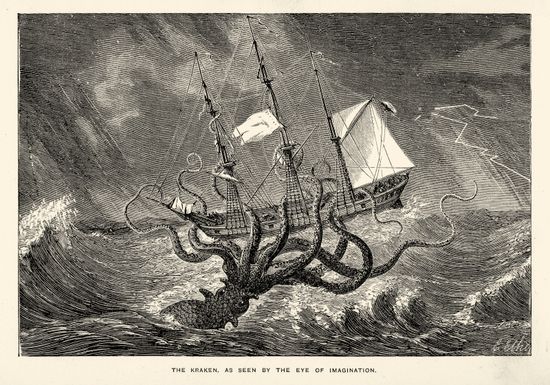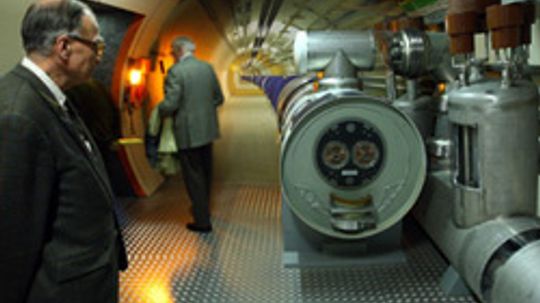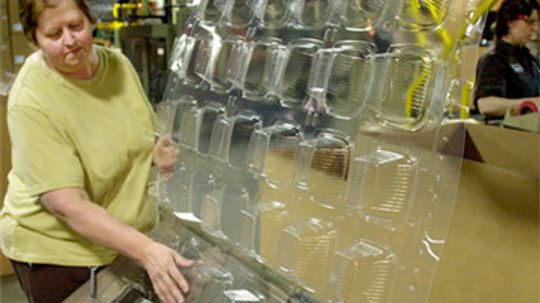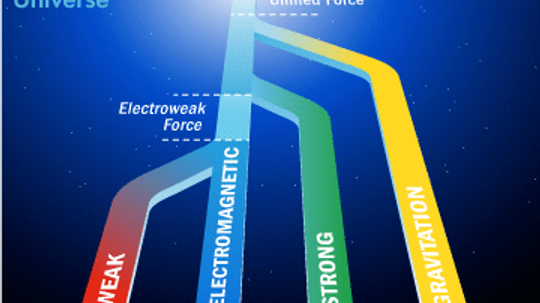Everyday Myths
There are certain aspects of everyday science that we think of as fact, but in reality may be pure urban legend. In this section, you can learn about some of the everyday science myths you may encounter.

Top 10 Ghost Tours

Top 10 Hotels That Will Scare the Daylights Out of You

What's So Scary About The Winchester House Story?

Understanding the Profound Meaning of Angel Number 909

The Mystical Meaning of Angel Number 727

1818 Angel Number: Unlocking the Path to Abundance and Success

Is the Bondo Ape a Cryptid or a Specially Adapted Chimpanzee?

The Yeti, aka Abominable Snowman: A Classic Cryptid

A Deep Dive on the Kraken, a Shipwrecking Sea Monster

What's Going on With Detroit's Mysterious Zug Island?

10 Unidentified Sounds That Scientists Are Seriously Looking Into

10 Famous Paranormal Hoaxes

What If Cows Didn't Exist?

What If Earth's Magnetic Field Flipped?

What If Humans Could Breathe Underwater?
Learn More
Discover the profound 555 angel number meaning. Uncover its significance in numerology and its impact on your life. Explore now.
By HowStuffWorks
Is the world run by the Illuminati or just some reptilian overlords? Were the moon landings faked? Whether or not you believe this kind of stuff, you'll be entertained by our conspiracy theory quiz.
For some, the holidays are time of good cheer. For others, they're a season of anxiety and loneliness. Does that translate to a higher suicide rate?
Advertisement
Hot sauce is the most popular condiment in the U.S. Learn more about hot sauce in this video from HowStuffWorks.
Has this ever happened to you? You're blissfully showering away when suddenly something slimy grabs your leg. It's the curtain, and it's not letting go.
We're running out of oil. And diamonds. And while we're at it, chicken wings, too! Relax, these are actually examples of shortages that really aren't. What else is a fake scarcity?
By Chris Opfer
The blood in your veins is blue. Glass is a slow-moving liquid. If you touch a baby bird, its mother will abandon it. Not so fast –- if you learned any of those "facts" in school, what you learned was wrong.
Advertisement
Quantum physics is a term that's interchangeable with "quantum mechanics." It deals with matter and energy at the smallest scale available: the atomic and subatomic realms. Take a look at these quantum physics pictures.
Relativity is like a triple-scoop ice cream cone; most of us just can't gobble it down in one bite, not without experiencing some serious brain freeze. So let's take it one delicious relative scoop at a time.
By Robert Lamb
The world's intelligentsia has managed to convince us that the Earth is round and makes a full rotation once every 24 hours. Why can't they agree on the effects of that rotation on toilets and ball games?
Can you do creepy, bendy things with your fingers that freak out your friends? You might have been called double-jointed. What's really going on with those joints of yours?
By Tom Scheve
Advertisement
You know how when you're bored, time seems to move at a snail's pace, but when you're having fun it goes by all too quickly? Einstein called it time dilation.
By John Fuller
Surfer and physicist A. Garrett Lisi may have solved one of physics' greatest mysteries -- the theory of everything. It's a mathematical link to how the universe works.
By Josh Clark
The standard definition of floating was first recorded by Archimedes and goes something like this: An object in a fluid experiences an upward force equal to the weight of the fluid displaced by the object. So how does the water get displaced to keep a boat afloat?
By Yara Simón
How great would it be to reconcile general relativity with quantum theory and truly have a theory of everything? That's what a band of theoretical physicists and their trusty hypothetical strings have been working on for decades.
By Robert Lamb
Advertisement
Wood, grass and food scraps undergo a process known as biodegradation when they're buried. They're transformed by bacteria in the soil into other useful compounds, but those same bacteria typically turn up their noses at plastic. Luckily, that's not the end of the story.
Plastics that aren't recycled tend to hang around our planet like houseguests who have worn out their welcome. Can biodegradable plastics, which may break down in fewer than 90 days, change that scenario?
The hybrid car may be the savior of the automobile industry, but its production processes have come under fire of late. The car may be green, but what about the way the car actually gets made?
By Dave Roos
Even though they've come down in price, solar panels are still expensive and somewhat inefficient. And then there are cloudy days. Can solar panels ever replace fossil fuels for our everyday needs?
Advertisement
Imagine waking up one morning to find yourself unable to get to work due to a dead car battery. You won't have to do that if you have a solar car battery charger -- but how well do they really work?
Matches work by combining flammable chemicals with heat from friction. Learn whether you can light a match with sandpaper in this article.
Most of us are accustomed to watching 2-D films with flat images. But when we put on 3-D glasses, we see a world that has depth. We can imagine existing in such a world because we live in one. What about another dimension altogether?
Forward and back, left and right, up and down -- most of us are familiar with these spatial dimensions. We might even pinpoint our location in time. Is that all there is to dimensions? No way, say the scientists who have a theory for everything.
By Robert Lamb
Advertisement
It opened the door for numerous technological advances, from nuclear power and nuclear medicine to the inner workings of the sun. It even appeared in the title of a Mariah Carey album. Really. Can you define those three key variables, too?
By Robert Lamb & Yara Simón
It could be that the hunt for the Higgs is a little like Christopher Columbus' famous 1492 voyage, full of surprising discoveries that take particle physicists to places they never anticipated. How's that voyage going anyhow?
By Robert Lamb
























